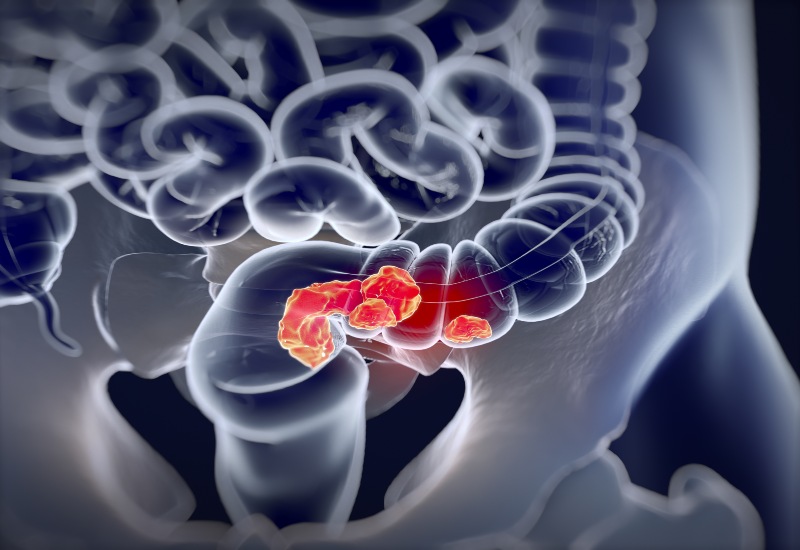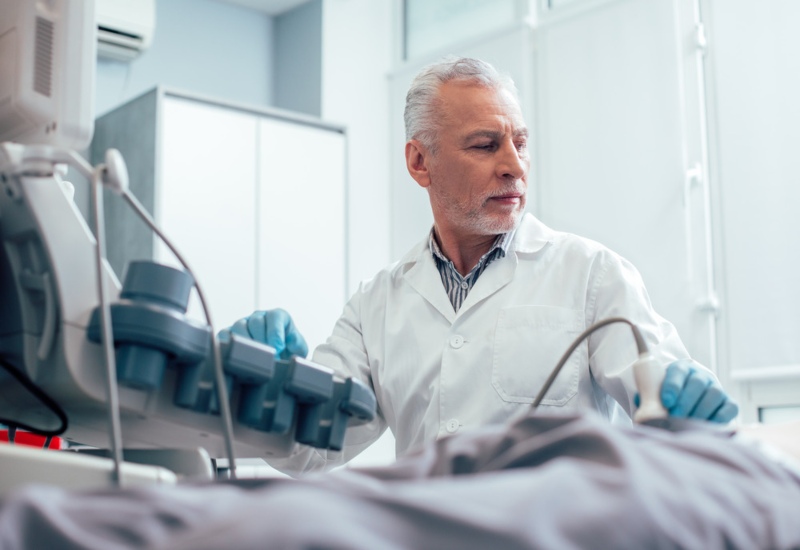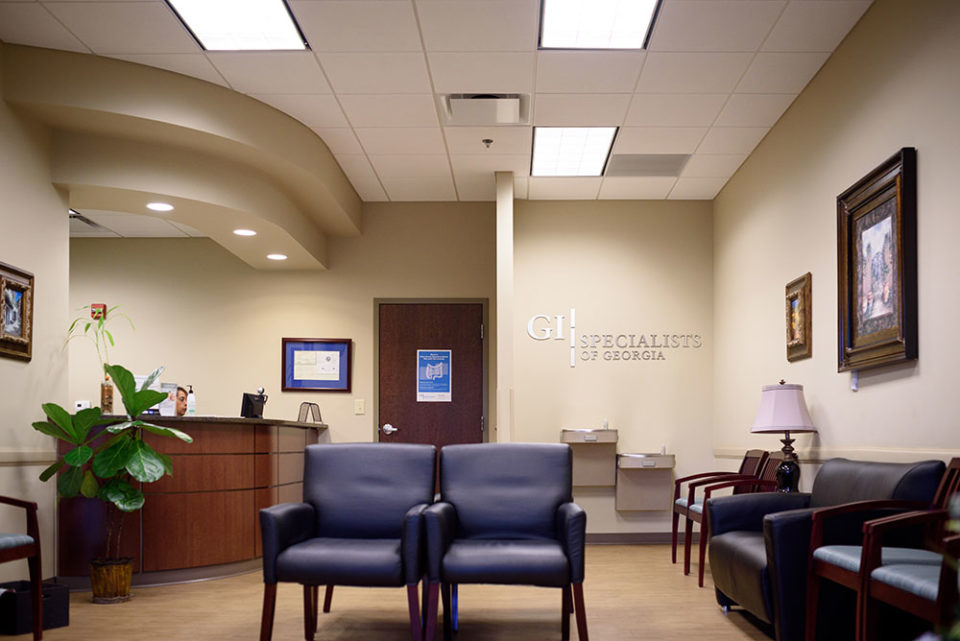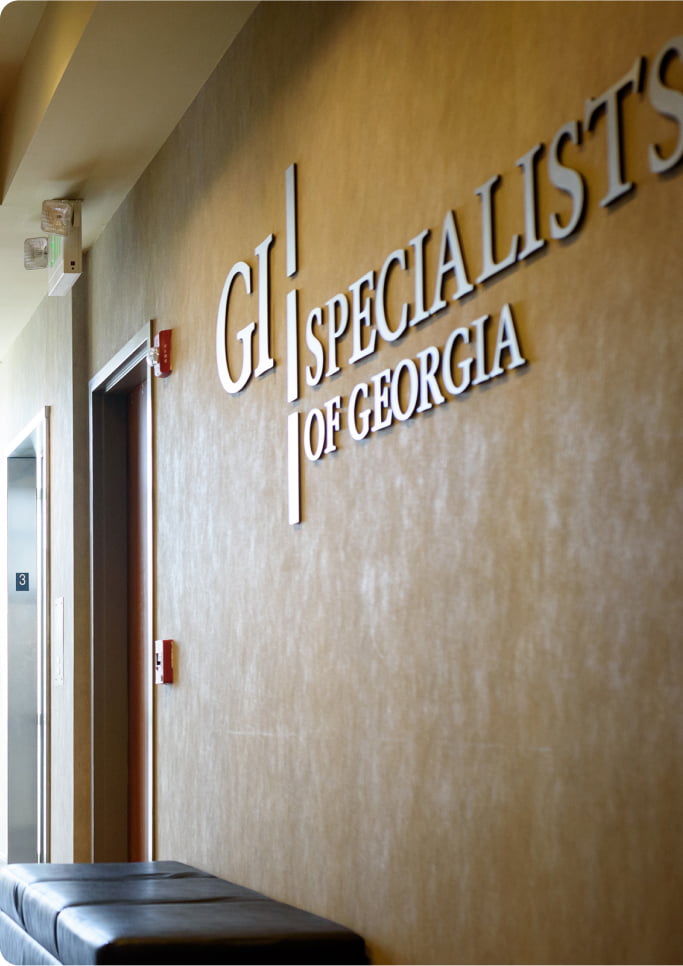What Is Rectal Cancer?

Rectal Cancer Symptoms
The earliest signs of rectal cancer are:
- Rectal bleeding or bloody stool
- Diarrhea or constipation
- Changes in bowel habits
- Narrow stool
- Fatigue or weakness
- Abdominal pain
- Rectal pain
- Unexplained weight loss

Stages of Rectal Cancer
- Stage 0 – In this stage, cancer cells are present on the surface of the rectal lining.
- Stage 1 – In this stage, the tumor has grown below the rectal lining and into the rectal wall.
- Stage 2 – In this stage, the tumor has grown into the rectal wall and extends to tissues around the rectum.
- Stage 3 – In this stage, the tumor has invaded lymph nodes near the rectum and possibly some tissues outside the rectal wall.
- Stage 4 – In this stage, the tumor has spread to distant organs or lymph nodes.
How Do GI Specialists of Georgia Treat Rectal Cancer?
We take an aggressive, proactive method toward treatment for rectal cancer. We will assess the location, size, and stage of your tumor as well as your overall health. We will then discuss your personal preferences and give you as much information as possible about your choices and options so you can make an informed decision. In addition to surgical rectal cancer treatment, we may suggest:
- Chemotherapy – Chemotherapy may be recommended before or after surgery to shrink a tumor or kill any remaining cancer cells.
- Radiation Therapy – Radiation therapy can be used before or after surgery to kill cancer cells and keep them from growing or dividing.
- Immunotherapy – Immunotherapy is drugs that are used to boost your immune system and teach your body how to fight cancer cells.
- Targeted Drug Therapy – Targeted drug therapy is recommended for advanced rectal cancer and is combined with chemotherapy. The treatment targets abnormalities in the cancer cells to kill them off.
Options for Surgical Treatment for Rectal Cancer
Surgery targets cancer cells, intending to remove as much of the cancer as possible before progressing with other treatment methods. Our surgical options include:
- TEMS – Transanal endoscopic microsurgery is a procedure during which the surgeon removes small cancers from the rectum by inserting a scope into your anus. We may recommend this treatment method if your tumor is small, contained in one area, and unlikely to spread.
- Low Anterior Resection – A low anterior resection may be recommended for large rectal cancers. The anus is preserved while the cancer is removed from the rectum.
- APR – Abdominoperineal resection is recommended when cancer is near the anus and can’t be removed without damaging the muscles that control your bowel movements. We may need to remove the anus, rectum, and part of the colon. A colostomy is used to allow waste to exit the body.

Diagnosing the Signs of Rectal Cancer
Our team of physicians has access to on-site diagnostic testing and pathology laboratories that allow them to diagnose rectal cancer. The first step will be assessing your symptoms, lifestyle, overall health, medical history, and demographic information, such as your age and weight. We may run several tests to evaluate the health and condition of your colon and rectum and make an official diagnosis:
- Colonoscopy – A colonoscopy is a test that uses a long tube with a small camera attached to view the interior of your colon and rectum. This is the gold standard for the diagnosis of rectal cancer.
- Biopsy – A biopsy is a small sample of tissue that is analyzed for cancer cells, disease, or pathology at a lab.
- CT Scan – A computed tomography scan is an imaging test that uses targeted X-rays to obtain a detailed view of your bones, organs, and tissues.
- MRI – A magnetic resonance imaging scan uses radio waves and magnets to obtain images of your body.
- PET Scan – A positron emission tomography scan requires that you drink a special dye containing radioactive tracers. This highlights areas of disease during a scan of the body.

Why Choose GI Specialists of Georgia?
Contact Us to Discuss Treatment for Rectal Cancer
Schedule an Appointment with Our Atlanta-Area Gastroenterologists
"*" indicates required fields

